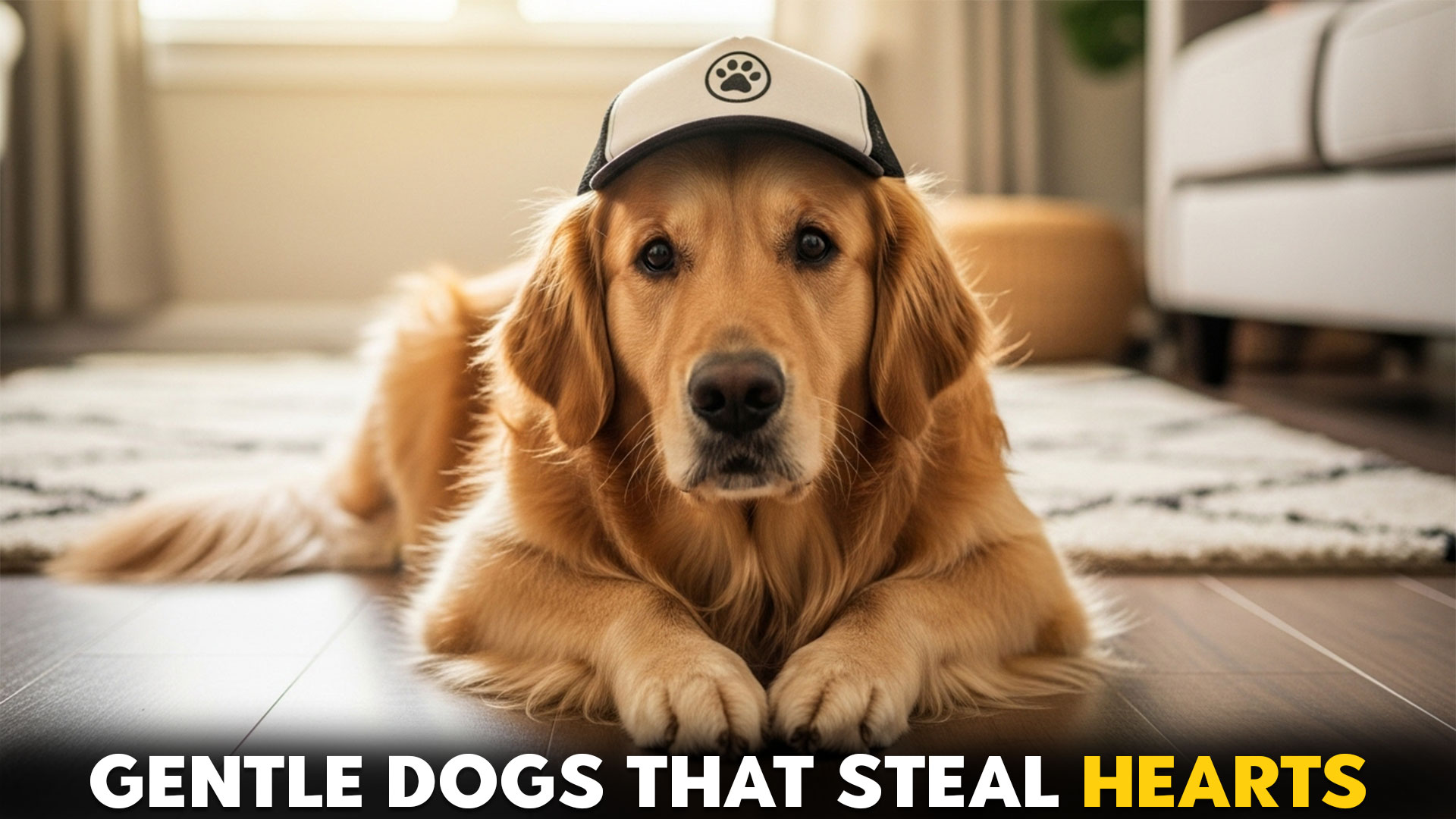Everyone knows dogs can be loyal, but some breeds truly embody the word gentle. Their temperament isn’t just anecdotal—it’s measurable. For instance, a large-scale genetic study of over 2,000 dogs and 18,000 owner surveys found that breed accounts for only about 9% of behavior, but certain breeds still stand out for their calm, affectionate nature.
What this means is that while no breed guarantees behavior, some types often bring a natural inclination toward gentleness. That makes them reliable friends for families, therapy roles, or anyone craving a mellow presence.
Dog breeds that define gentle in the best way
1. Golden Retriever
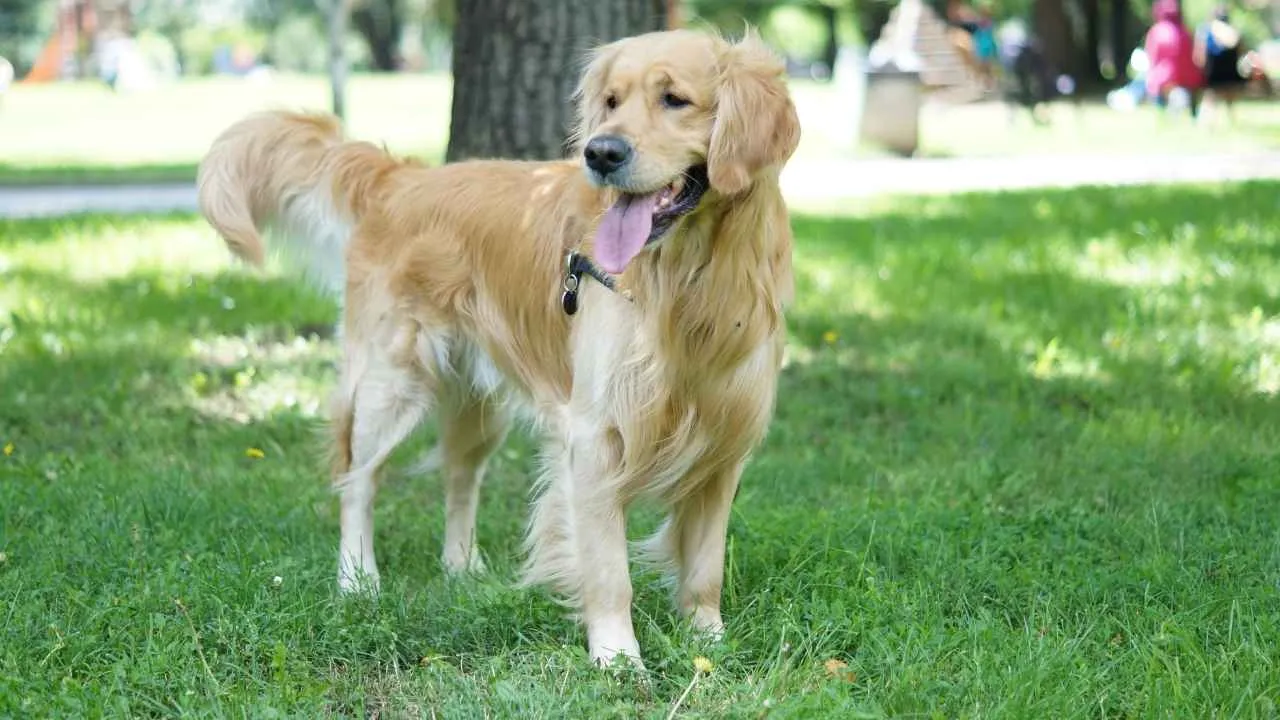
Golden Retrievers are the gold standard when it comes to gentle dog breeds. Originally bred in Scotland as working dogs to retrieve waterfowl, these pups have transitioned from the fields to family living rooms without losing their charm.
They’re eager to please and thrive on companionship, making them one of the most loyal companions for both kids and adults. Their reputation as a gentle dog with a sweet temperament is well-earned, and their ability to bond with other dogs, cats, and even small animals sets them apart.

Gentle Jaws: Known for their soft mouths, they can carry delicate items (or a toddler’s toy) without damage—a trait rooted in their retriever history.
Therapy & Service Role: Their gentle demeanor, smarts, and patience make them a top pick for therapy dogs and guide services.
Natural Swimmers: Golden Retrievers love water play and are surprisingly agile in lakes and pools thanks to webbed feet and water-resistant coats.
Family-Oriented: They’re one of the few dog breeds that can match a child’s energy while still being calm enough to snuggle afterward.
Their balanced temperament, sweet nature, and instinct to comfort others make them the kind of canine companion every household dreams of. Whether you live an active lifestyle or prefer relaxed daily walks, Goldens adjust easily. Simply put, they’re the gentle giant that always feels like home.
2. Labrador Retriever
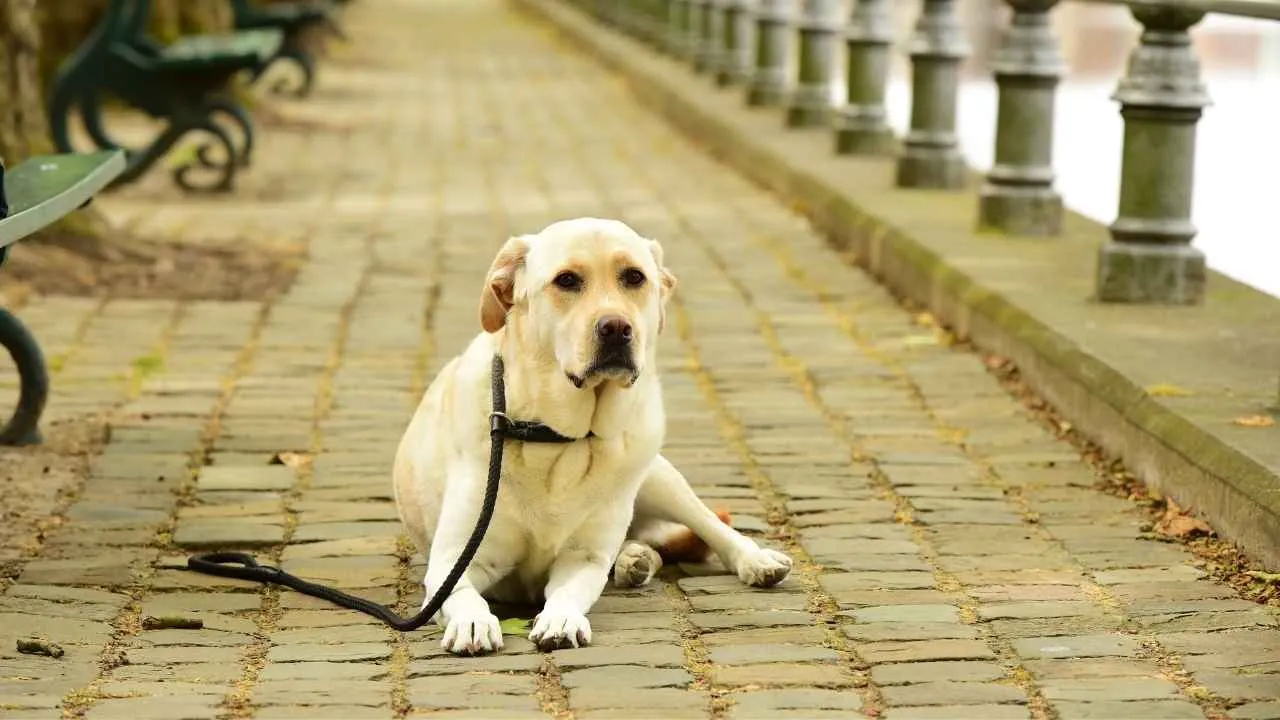
If you’re looking for a gentle dog who can switch between being a playful buddy and a calming presence, the Labrador Retriever checks all the boxes. Labs are known for their affectionate spirit and strong emotional awareness.
Whether you live alone, with kids, or in a house full of pets, Labs tend to adjust effortlessly. Their nature isn’t just friendly—it’s comforting, especially for people who want a loyal companion that feels present.
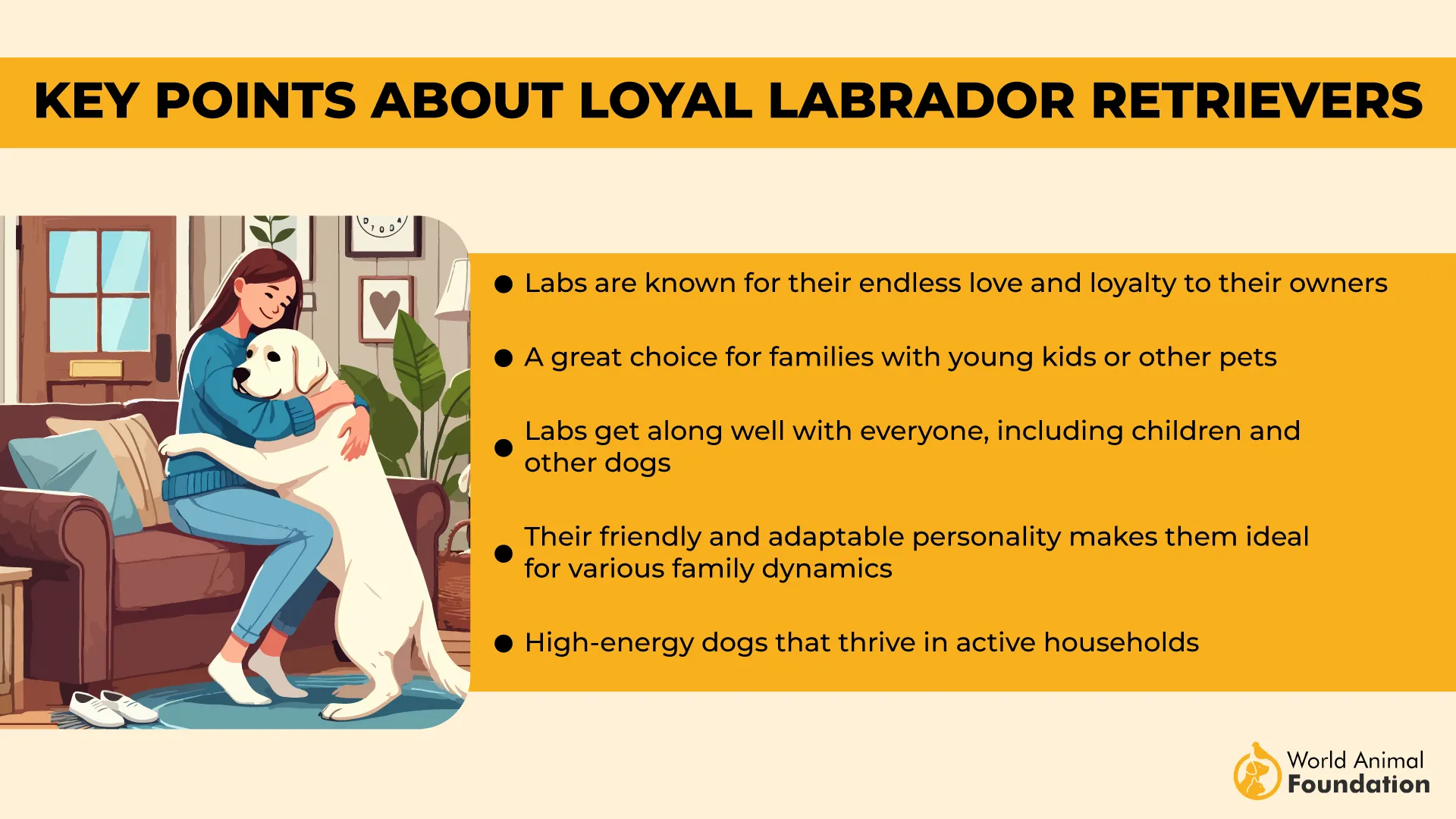
Water-Loving Build: Originally bred for retrieving waterfowl, Labs have webbed feet, an otter tail for steering, and a double coat that helps them swim in cold water.
Fun Fact: A Lab named Duke once became the honorary mayor of a town in California—because yes, they’re that charming.
High Energy Needs: Without daily exercise or mental stimulation, they can get restless or destructive. This is not your typical low-maintenance dog.
Best for Active Families: Their stamina makes them a great match for active dogs and people who enjoy daily walks, hiking, or long sessions of play fetch.
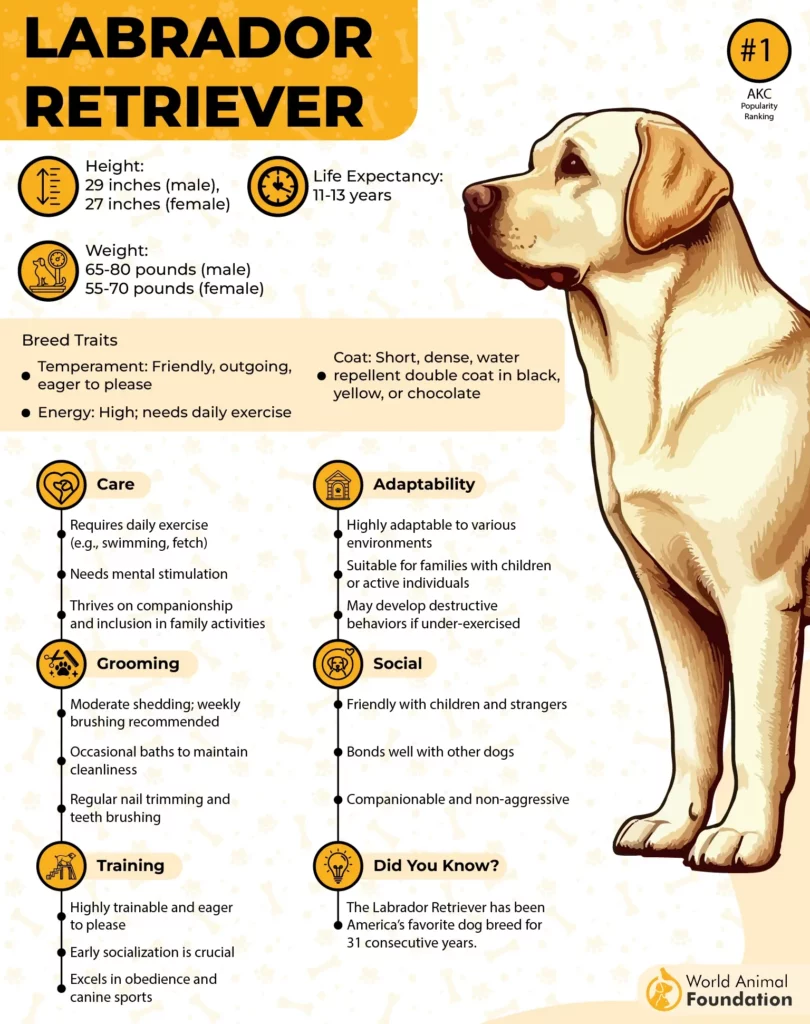
Labradors are often dubbed the “most popular dog breed” for good reason—they bring balance, joy, and adaptability to any setting. If you need a mix of boundless energy and patience in one fuzzy package, this is your dog.
3. Basset Hound
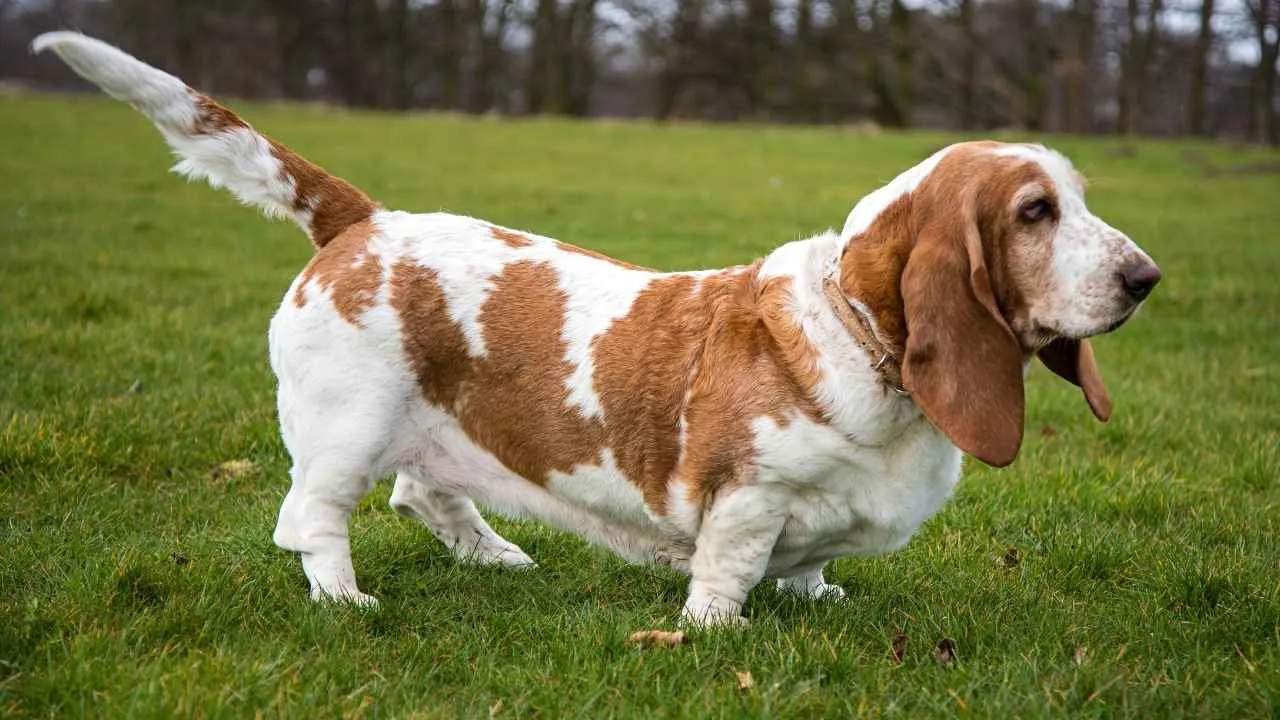
With their droopy ears, short legs, and slow-paced charm, Basset Hounds are the poster dogs for “chill dogs.”
They may come from a long line of hunting dogs, but their vibe at home is loyal and quietly affectionate. They don’t seek constant attention, but still form incredibly strong bonds with their families.
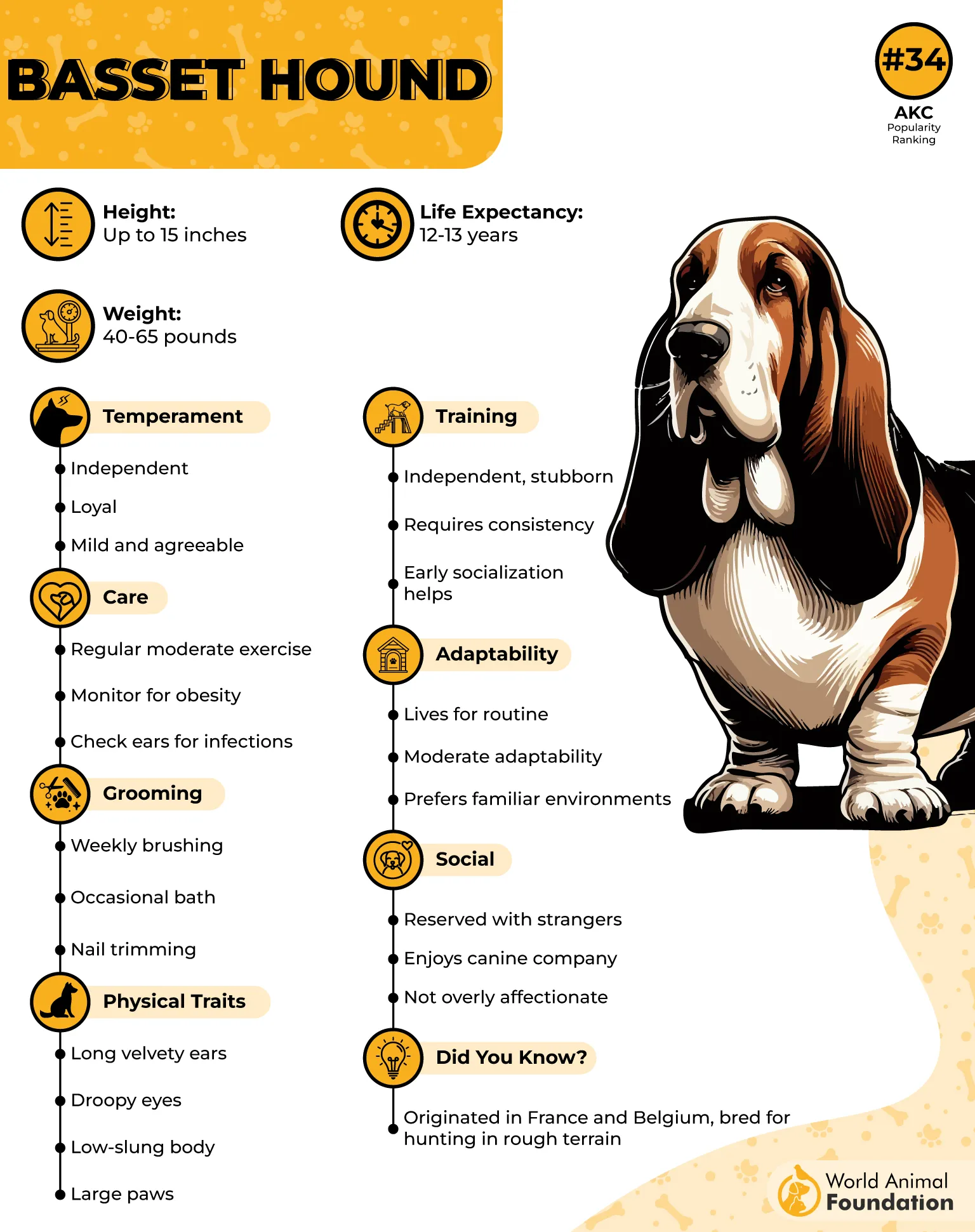
Scent Specialists: With a sense of smell nearly as sharp as a Bloodhound’s, Bassets were originally bred to track small game.
Distinct Features: Long ears and wrinkled skin around the face and neck help trap and focus scents, making them exceptional trackers.
Stubborn but Smart: While not the easiest breed to train, Basset Hounds respond well to food-based motivation.
Social Instincts: They enjoy being around other dogs and humans and can get anxious if left alone too long.
Natural Diggers: Their nature includes digging, and their curiosity can lead them to wander if not securely fenced in.
Vocal Tendencies: Though laid-back indoors, they’ll bark or bay when intrigued by a scent or when left alone for too long.
If you’re looking for a low-maintenance dog with a deeply gentle temperament, a Basset Hound fits the bill. Just be ready for the occasional howl and a whole lot of love—on their terms, of course.
4. Cavalier King Charles Spaniel
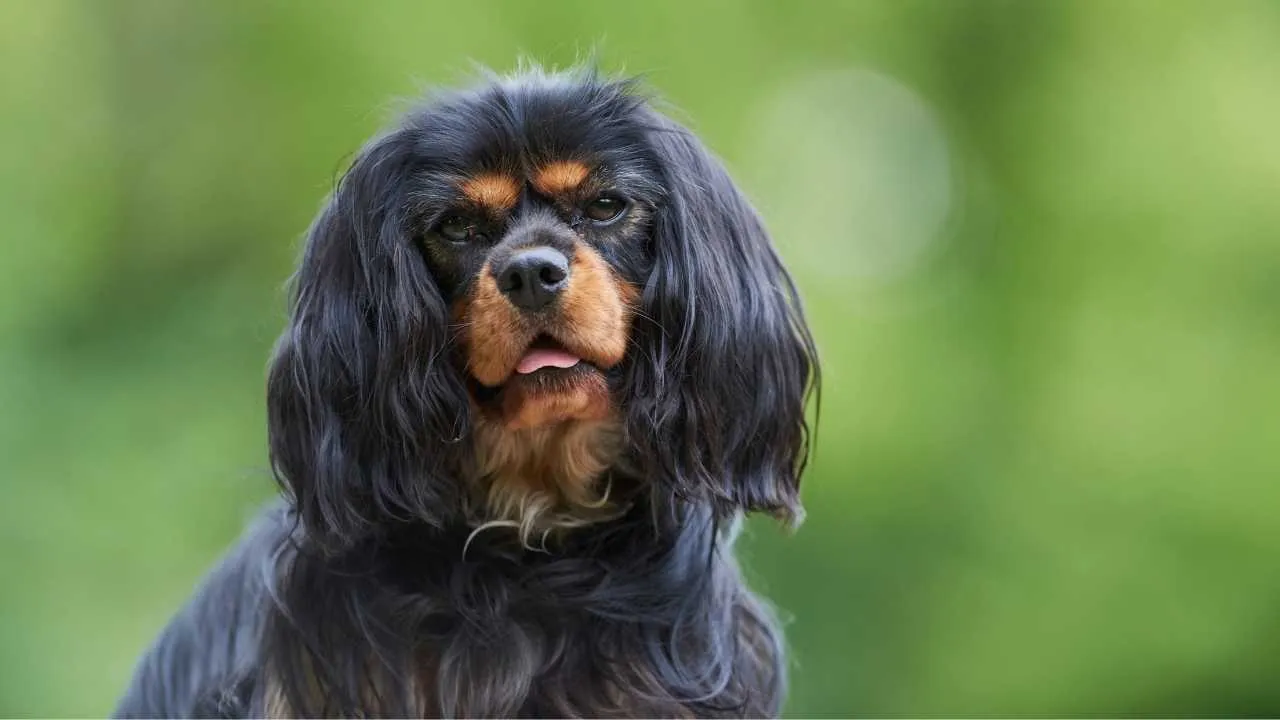
The Cavalier King Charles Spaniel is the definition of a gentle dog in a small, cuddly package. Once favored by royalty, these elegant pups bring an old-world charm paired with an impressively sweet temperament.
They’re naturally warm, responsive to emotions, and thrive in close contact with their humans. Known for being soft-hearted and people-oriented, Cavaliers have a reputation for making gentle companions, especially for children, the elderly, or those in need of emotional support.
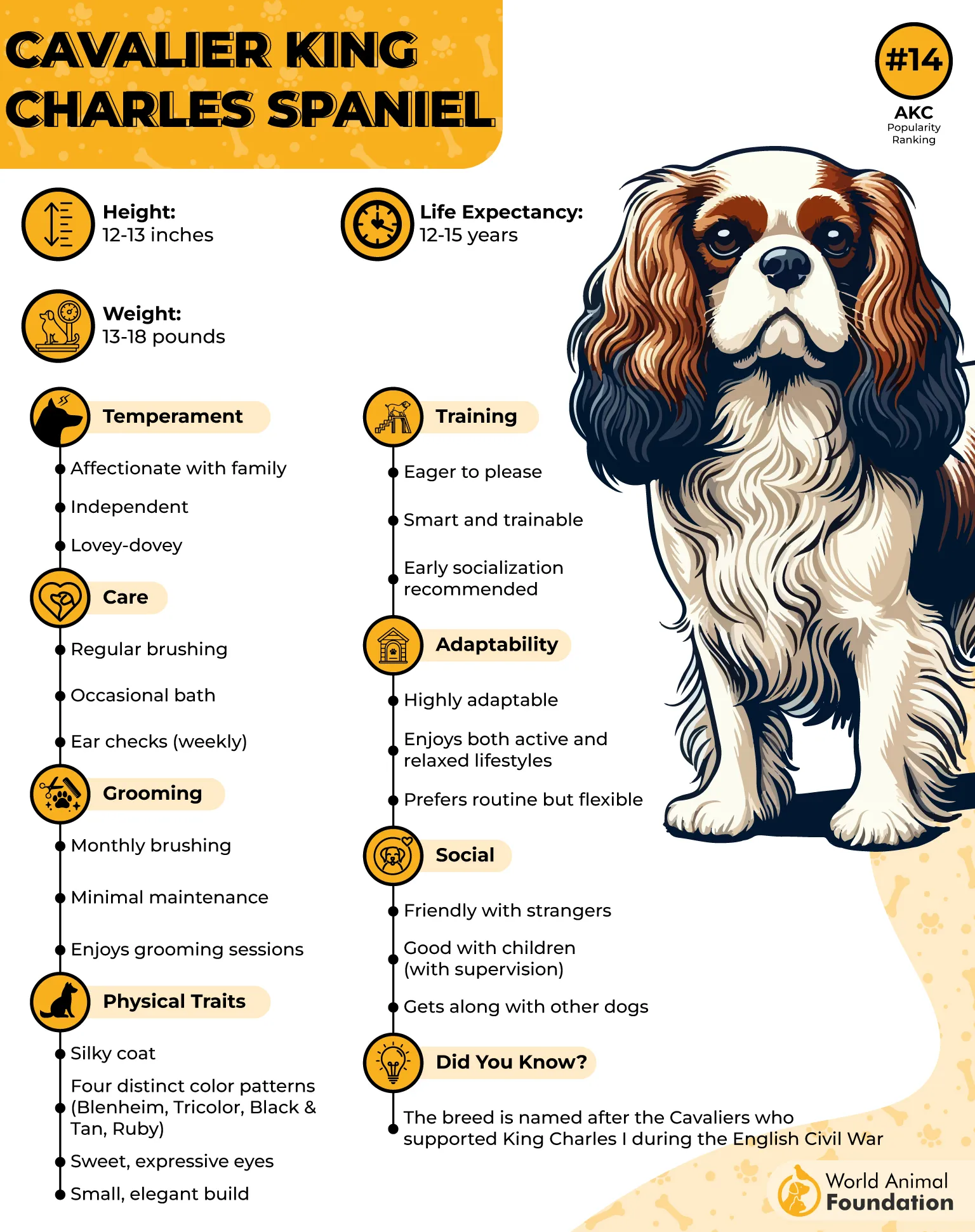
Not Shy: Despite their small size, Cavaliers confidently interact with larger dogs and form fast friendships.
Blenheim Spot: A reddish-brown mark on the forehead—exclusive to Blenheim Cavaliers—gives this breed a unique and regal look.
Royalty Connection: Named after King Charles II, who adored them and rarely appeared in public without a few by his side.
Lap Dogs: As true lap dogs, they love to rest close and soak up attention with calm joy.
Health Watch: Cavaliers are prone to specific health concerns like mitral valve disease and knee issues, so regular vet care is essential.
They’re not overly energetic, but they’re always ready to play or offer quiet company on the couch. Whether you’re seeking a calm dog for a child or a gentle companion to keep you company at home, this breed blends love and loyalty without demanding too much space or exercise.
5. Irish Setter
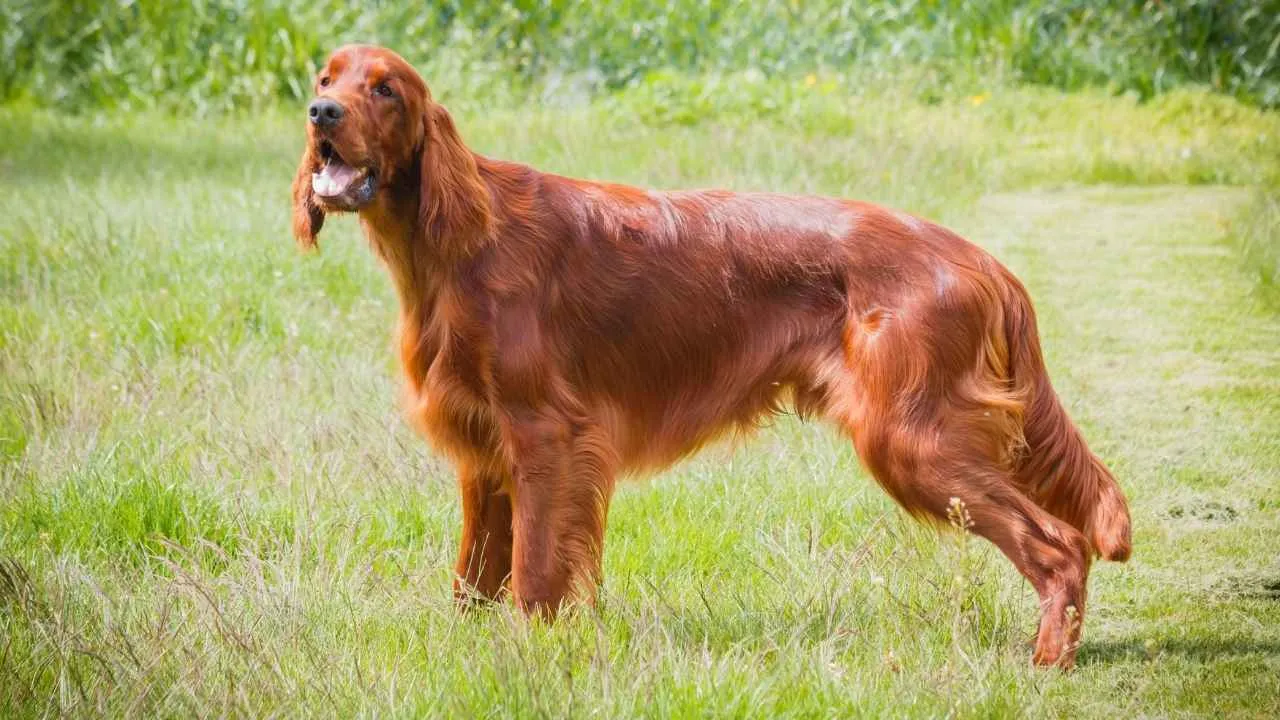
At first glance, the Irish Setter might not strike you as a typical gentle dog breed—they’re fast, lively, and full of boundless energy. But beneath the zoomies and red coat is an emotionally intuitive canine companion. Irish Setters have a gift for sensing mood shifts.
Whether you’re surrounded by friends or having your moment, they know when to dial it down. Their love for children and strong emotional presence make them a standout in families that want both energy and warmth.
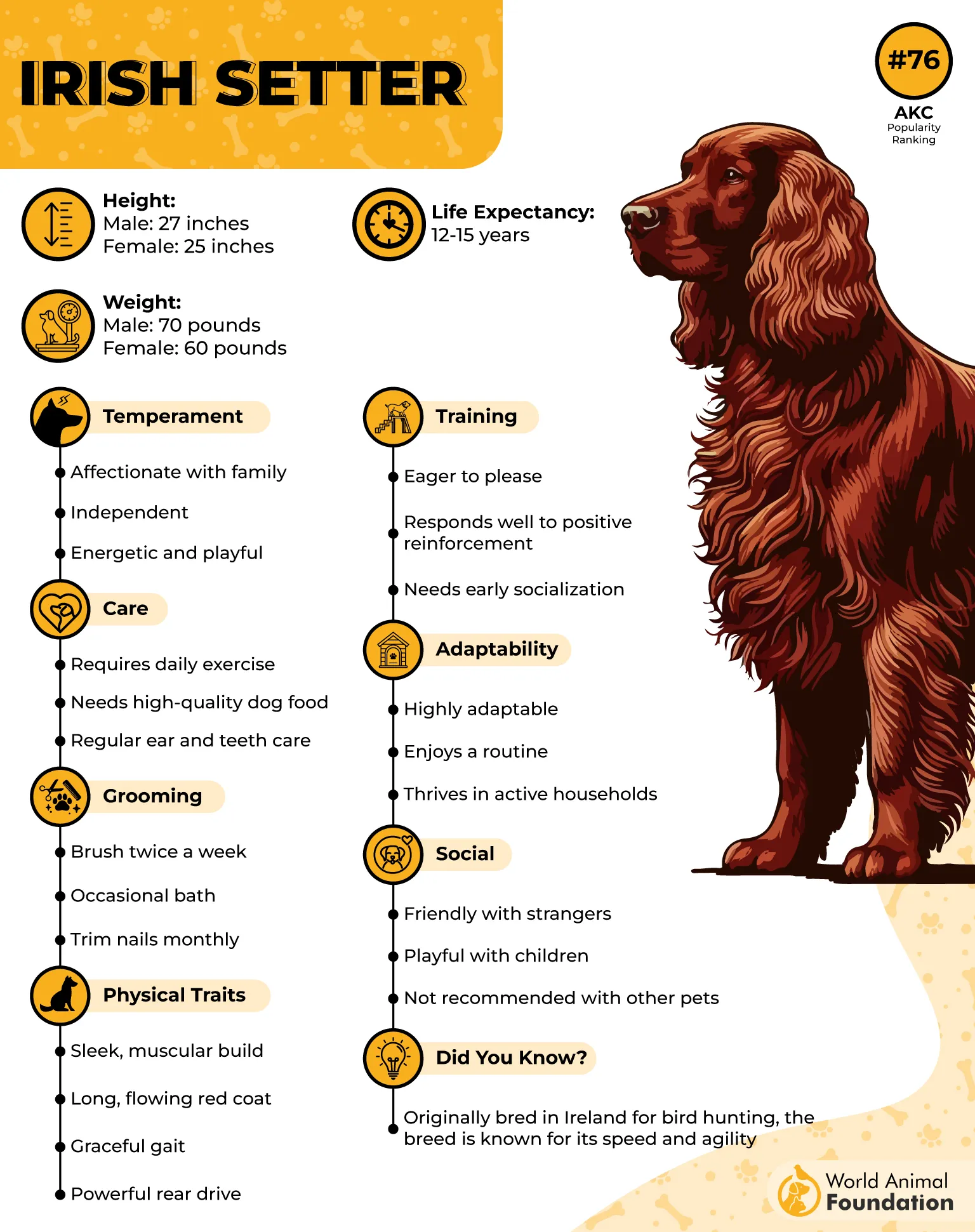
Strong Hunting Instincts: Originally bred as working dogs, they’ve got prey drive. Early socialization is key around small animals.
Slow to Mature: These pups act like goofy kids well into adulthood, which can be fun or exhausting, depending on your pace.
Eager to Please: While independent, they’re also obedient and thrive under positive reinforcement.
Social Butterflies: Irish Setters love being around other dogs and will often try to greet strangers like old friends.
“Clownish Rogues”: Their playful antics and occasional mischief are part of their charm—and sometimes their chaos.
They may not be what you’d call lap dogs, but when their energy is spent, they’ll curl up next to you with the gentleness of a therapy dog. They’re ideal for families with an active lifestyle who still value emotional connection and a touch of mischief.
6. Bernese Mountain Dog
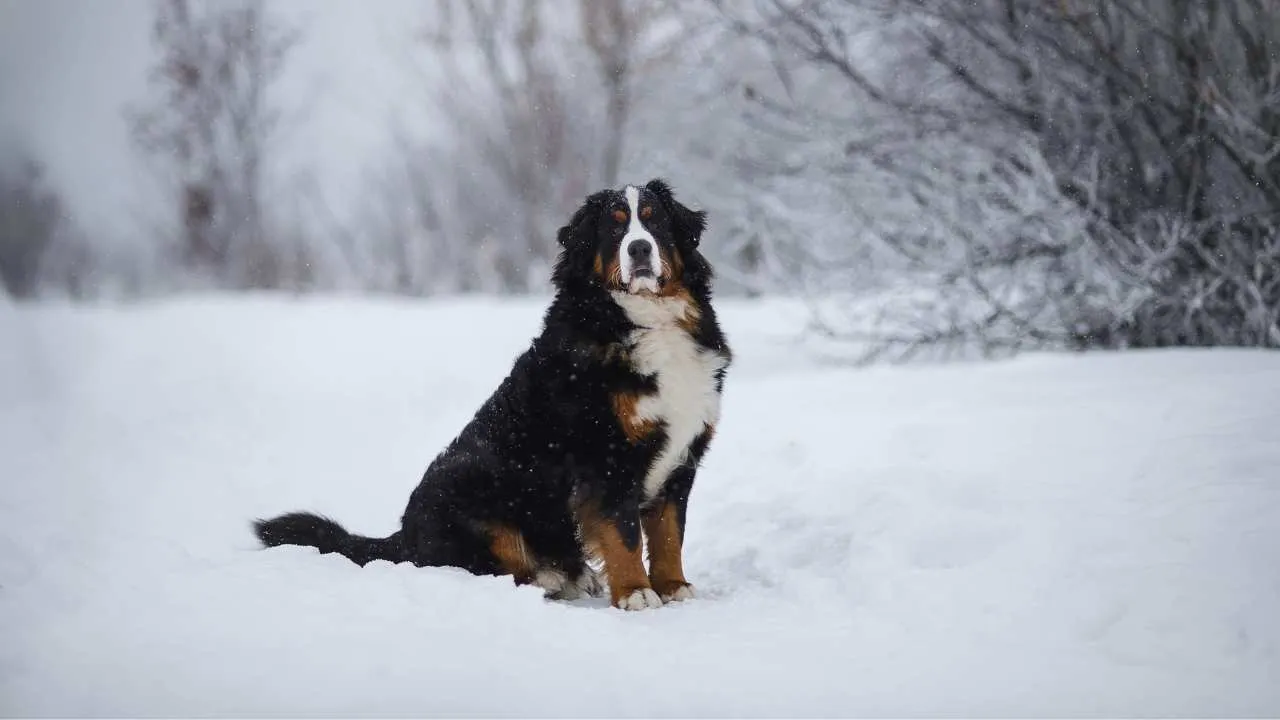
The Bernese Mountain Dog is the textbook example of a gentle giant. Their calm confidence, gentle temperament, and steady loyalty make them a favorite among families who want a dog that’s great with both children and other dogs.
Even with their massive size, Berners tend to be cautious and considerate in how they move around the house. They’re especially valued for their natural ability to bond closely with their humans, creating a deep, special bond without demanding constant attention.
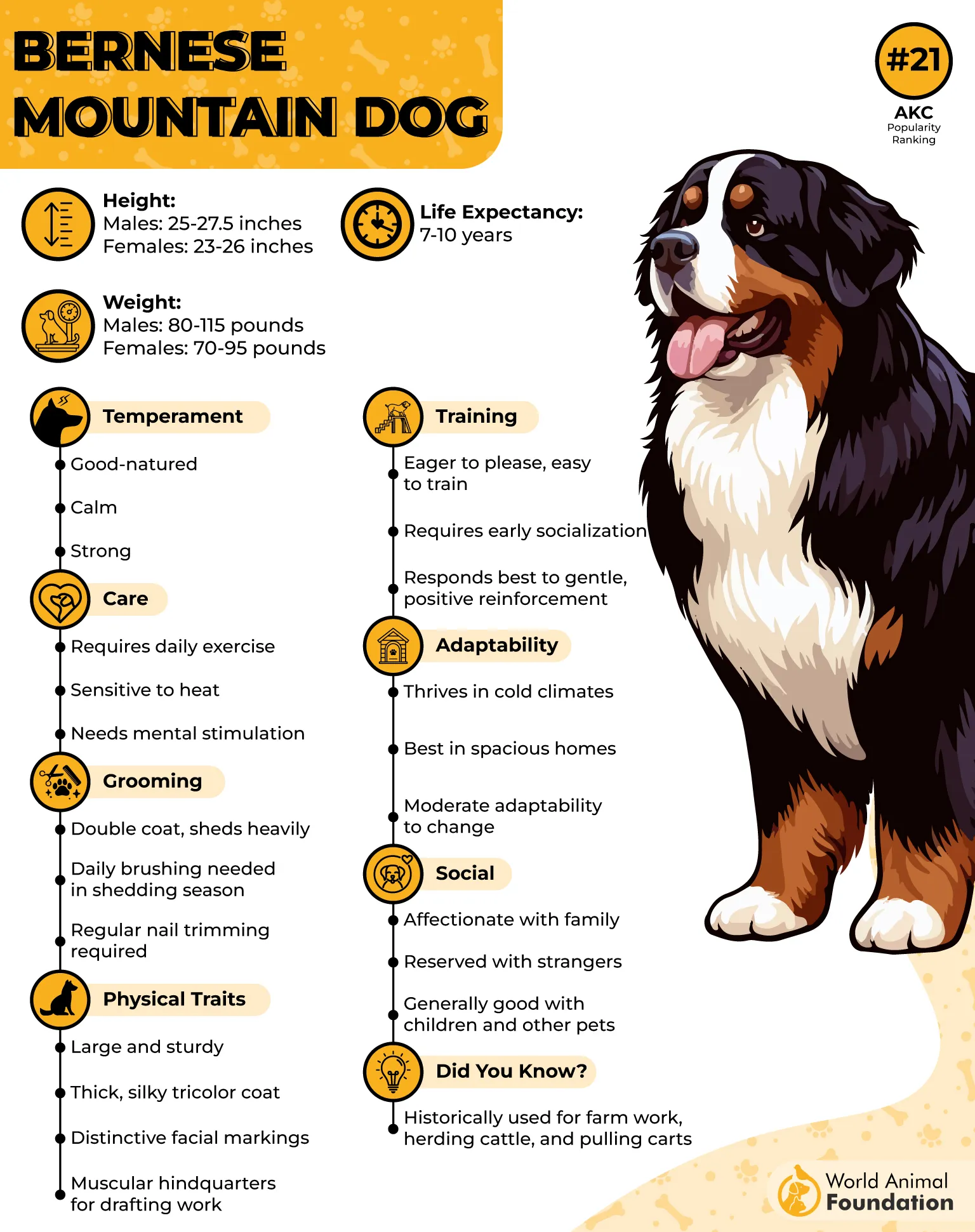
“Cheese Dogs”: Historically used to pull cheese carts in the Swiss Alps—yes, that’s a real thing—they were built for strength and calm under pressure.
Versatile Workers: Berners are talented in working dog roles—herding, pulling, and even agility training, despite their size.
Heroic Instincts: Known for acts of bravery, they’ve saved lives in emergencies, guided children home, and shown intense family loyalty.
Cold Weather Ready: Their thick coat makes them ideal for daily walks in winter, perfect for owners in chilly climates.
Low Drool Factor: Unlike many large breeds, they’re surprisingly tidy around the mouth, which makes house life a bit easier.
With their sweet nature and go-with-the-flow attitude, Bernese Mountain Dogs offer comfort, presence, and reliability. They’re great companions for those who want emotional depth, a bit of protection, and the kind of dog who always seems to understand the mood of the room.
7. Greyhound
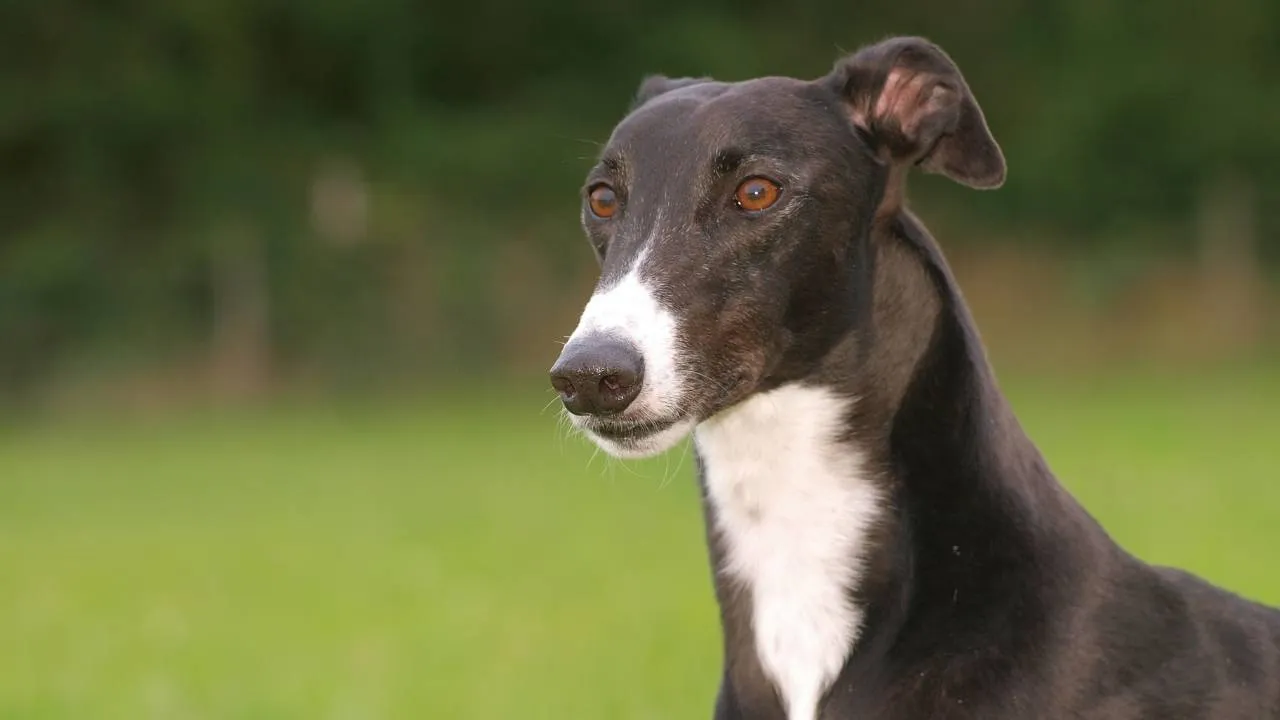
Greyhounds might surprise you with just how quiet and gentle they are at home. Off the track, they’re calm, low-maintenance, and emotionally soft dogs that form deep bonds with their people. They’re especially good for those looking for a calm dog breed that doesn’t need much fuss.
Greyhounds often thrive in peaceful households where they can rest, lounge, and enjoy a stable routine. Their past as cooperative racers bred out aggression, making them gentle companions for both individuals and families.
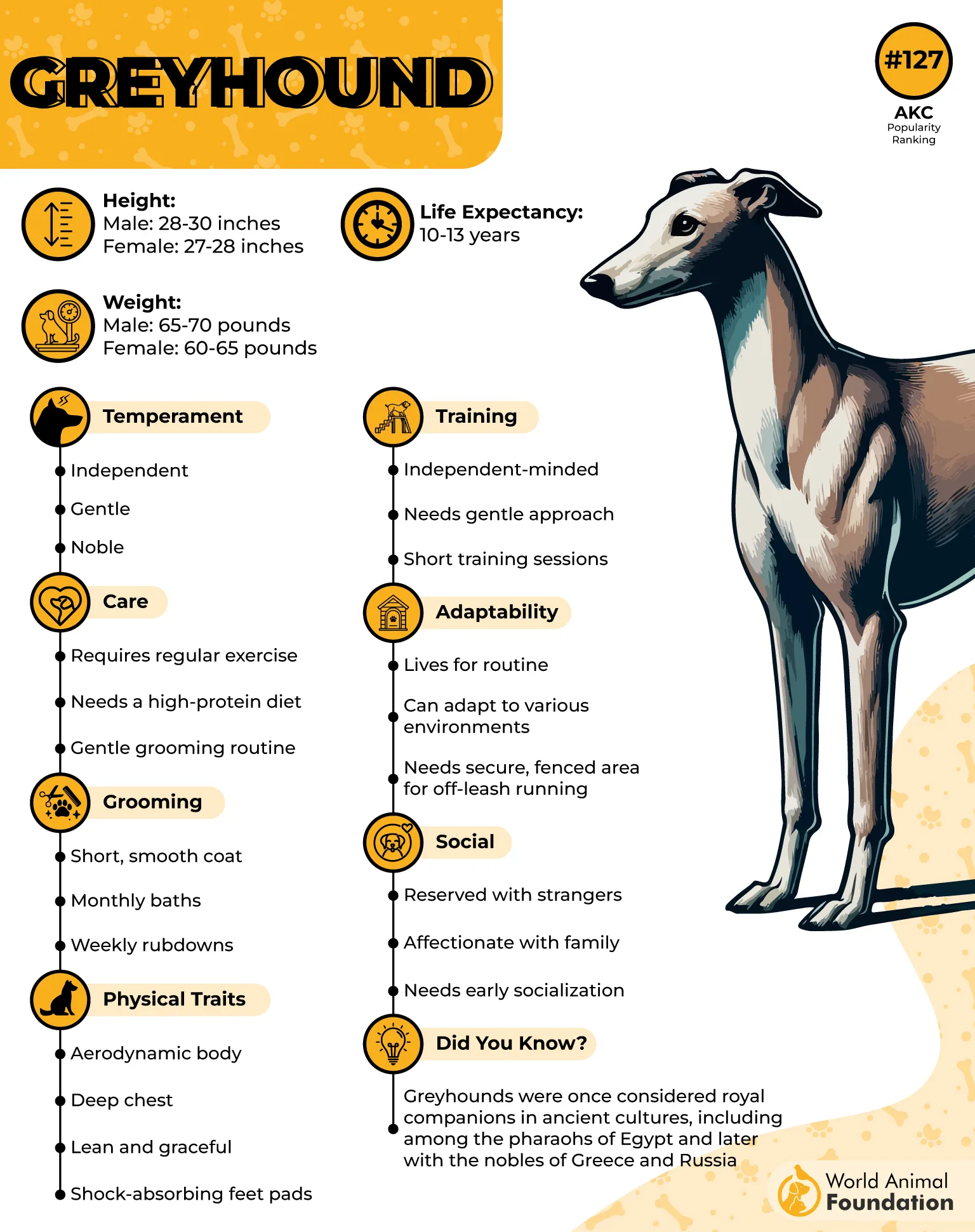
Top Speed: Clocking over 40 mph, Greyhounds are the fastest of all dog breeds—but they only need short bursts of activity.
Sight Hounds: Unlike scent-driven breeds, Greyhounds use their eyes to track movement and have a 270-degree field of vision.
Independent Nature: While loving, they’re not overly clingy. Training them requires patience and a soft touch.
Minimal Grooming: Their short, sleek coat makes them easy to care for—perfect for those wanting a low-maintenance pet.
High Prey Drive: Due to their hunting history, they may not be suited for homes with small animals like rabbits or rodents.
If you’re after a gentle dog that brings both elegance and peace into the home, Greyhounds are it. They’re equally content with a short walk or a long nap, making them perfect for homes with a quiet, laid-back rhythm.
8. Great Pyrenees
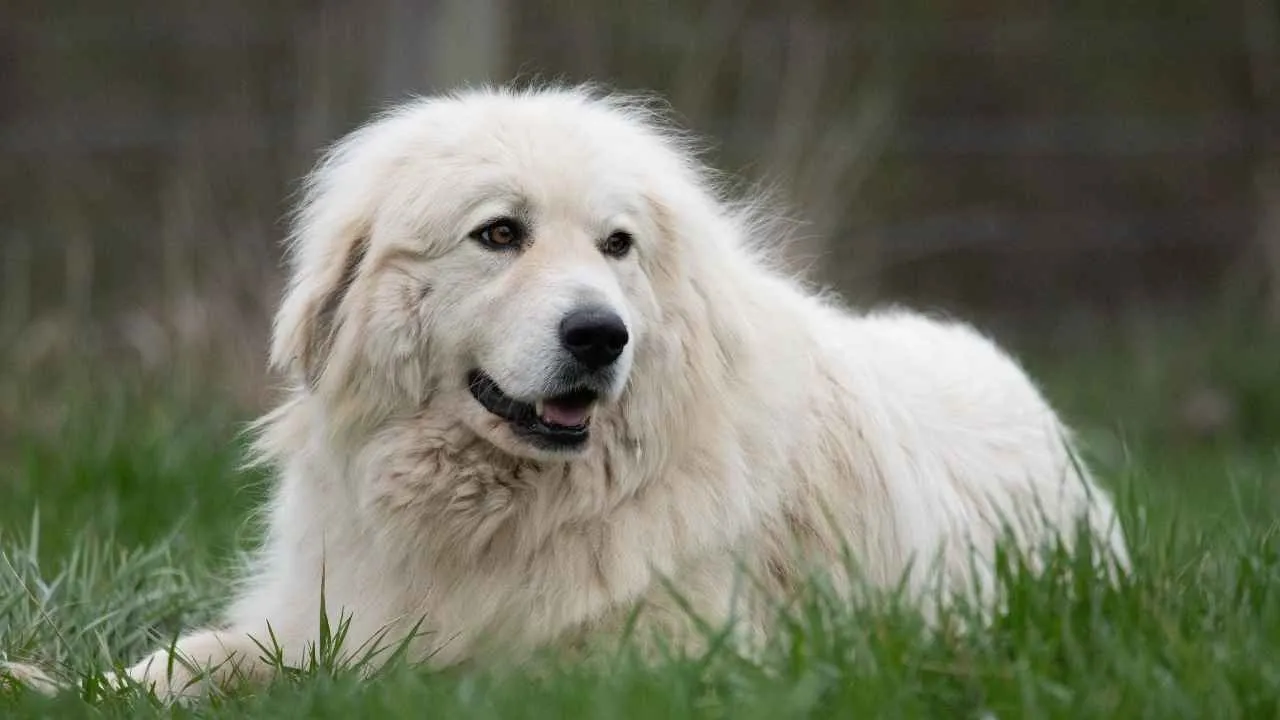
The Great Pyrenees is proof that a dog can be both powerful and profoundly gentle. According to PetMD, they were bred in the snowy heights of the Pyrenees Mountains to guard livestock from predators. These gentle giants carry a noble presence and a heart full of devotion.
While their protective instincts are strong, they’re remarkably calm and nurturing, especially around children, smaller animals, and familiar people. Known for their patience, they bring a soothing, watchful energy into any home, and they’re often used today as therapy dogs thanks to their steady nature and emotional awareness.
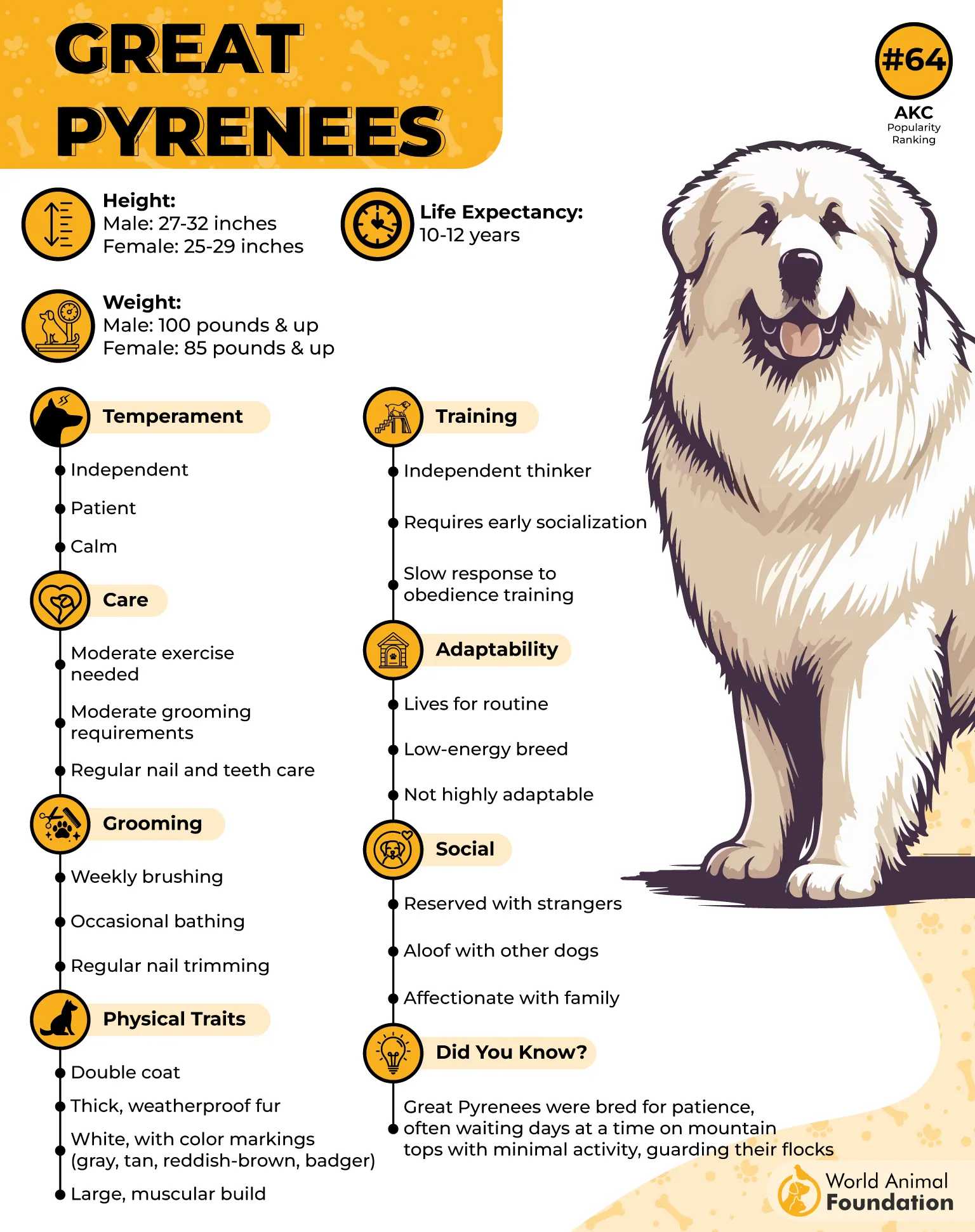
Double Dewclaws: One of the few dog breeds with double dewclaws on their back legs—a trait that speaks to their rugged mountain origins.
Nocturnal Guarding: Bred to protect flocks overnight, they’re especially alert during the evening and have exceptional hearing.
Royal Connections: Once favored by European royalty, these dogs weren’t just protectors—they were also seen as status symbols and loyal companions.
Protective but Peaceful: They rarely act aggressively without cause, but their size, presence, and powerful bark are often deterrent enough.
Though they have an active dog background, the Great Pyrenees is surprisingly mellow indoors. Give them structure and early training during their young age, and you’ll have a deeply bonded, emotionally intelligent canine companion that keeps your world safe and calm, all with a touch of royalty.
9. Great Dane
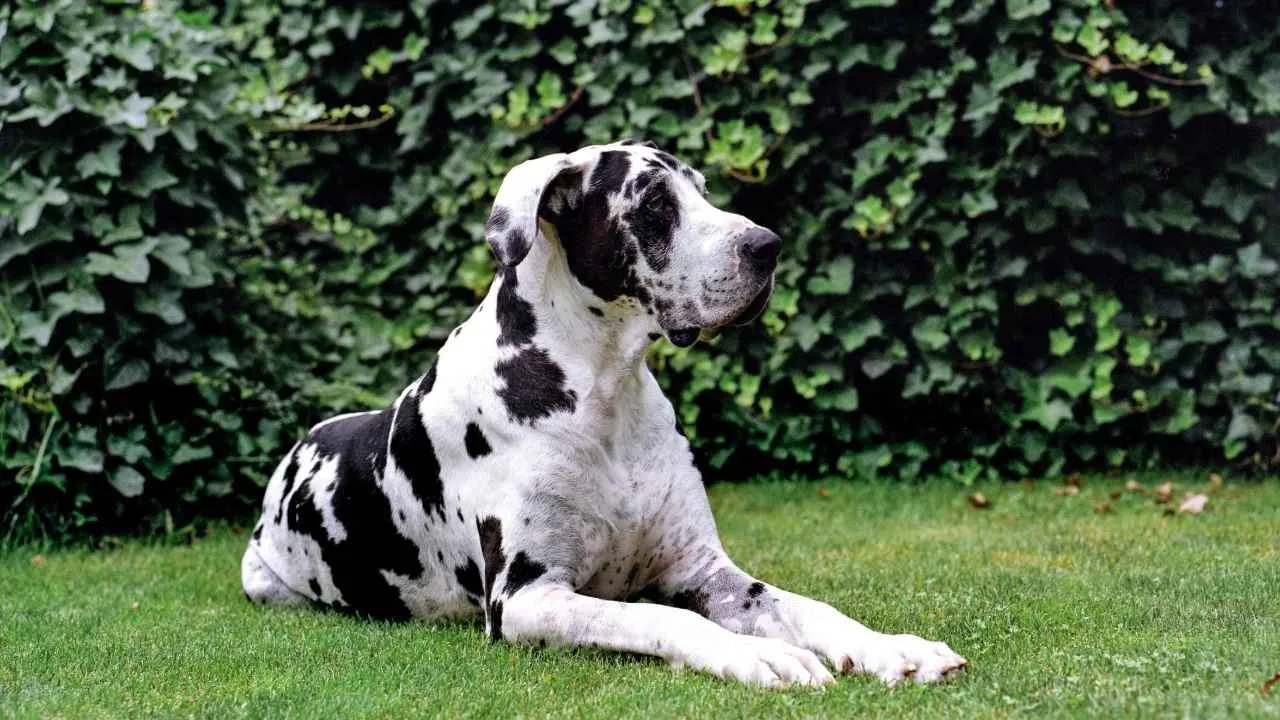
The Great Dane may look intimidating at first glance, but these towering dogs are famously tender at heart. Known as the “Apollo of dogs,” they blend strength with a surprisingly soft personality.
They tend to form deep, loyal connections with their families and are often seen lounging like oversized lapdogs. When raised with structure and care, Great Danes are incredibly trustworthy around kids, guests, and even other pets.
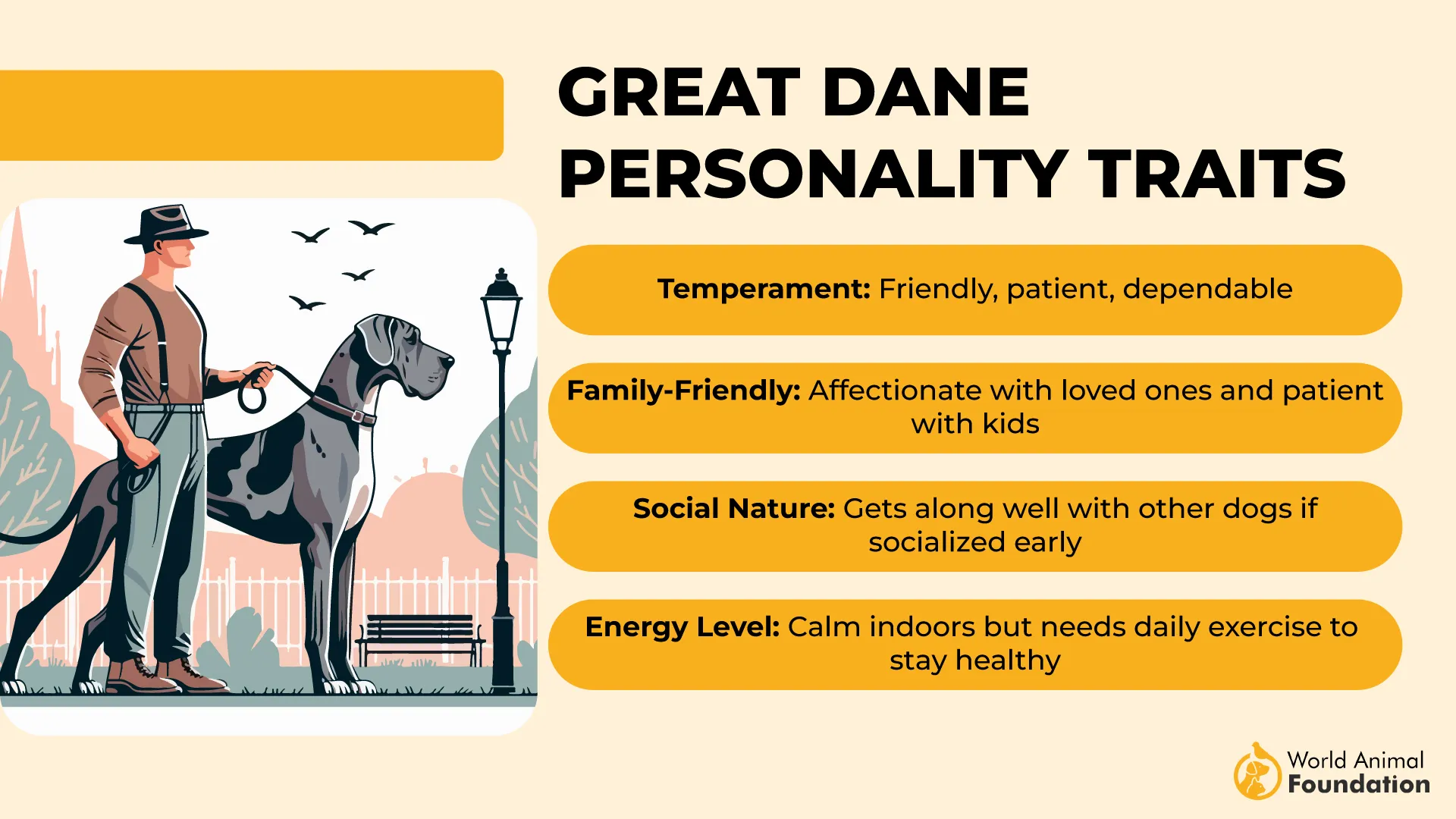
Gentle Giants: Despite their bulk, they’re emotionally sensitive and crave closeness with their owners.
Tallest Dog Breed: Great Danes can reach heights that tower over other dogs, often standing over 30 inches at the shoulder.
German Origins: According to WebMD, they were originally bred in Germany for hunting wild boar, not in Denmark as the name might suggest.
Not Always a High-Energy Dog: While they benefit from exercise, many Danes are content with moderate activity and couch time.
Watchdog Potential: Their sheer size makes them a natural deterrent, but they’re more likely to lean into you for reassurance than lunge at strangers.
Not Always Gentle with Unfamiliar Dogs: Without early socialization, some may show selective reactivity, underscoring the need for responsible training.
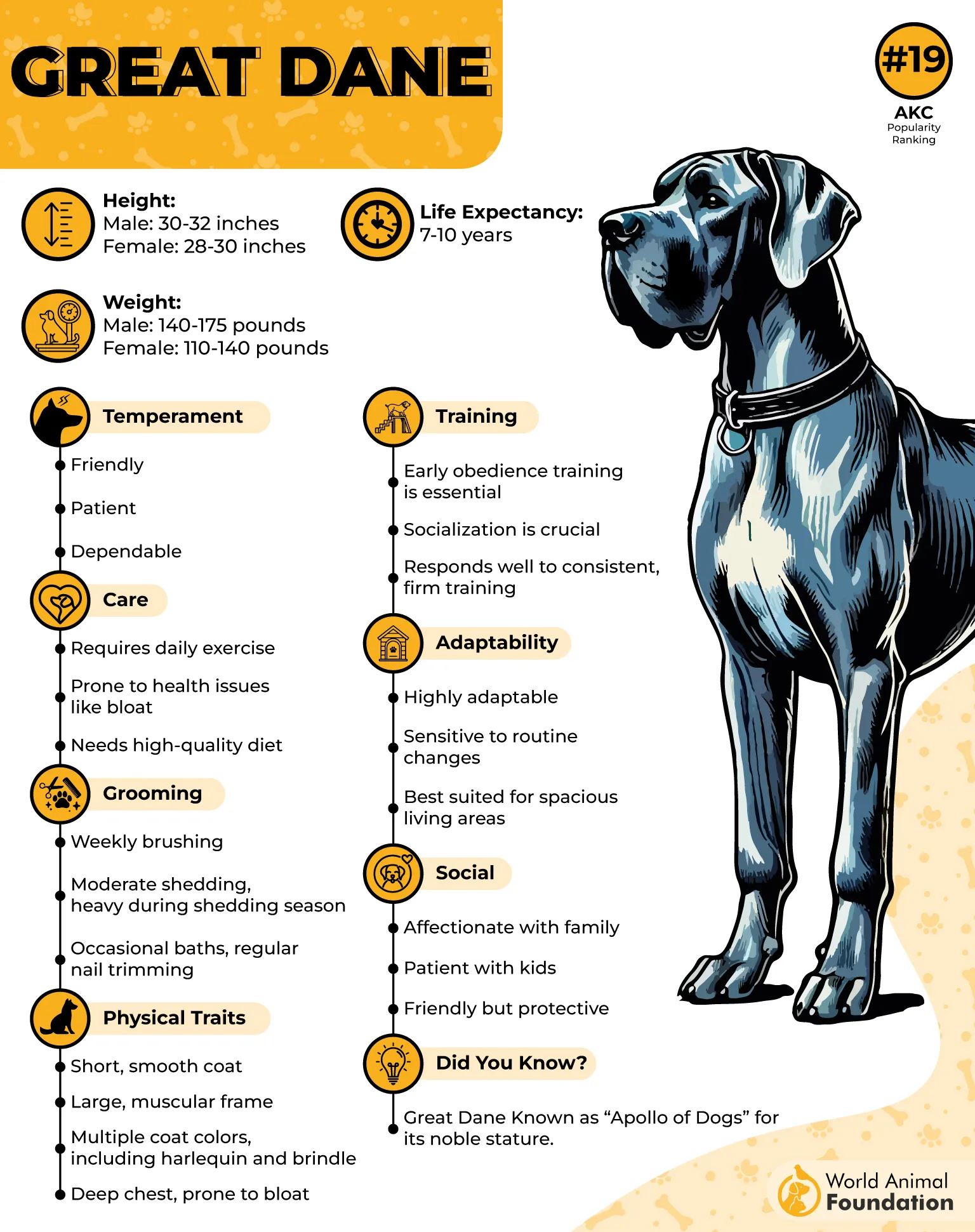
With their elegance, emotional depth, and gentle demeanor, Great Danes prove that even the largest dogs can be the softest souls. They’re not just pets—they’re room-sized cuddle buddies with giant hearts.
Conclusion
Choosing the right dog means understanding not just what you want in a pet, but what kind of energy fits your home. For many owners, a calm presence is exactly what they’re after—and that’s where these breeds shine. While every dog is unique and some may be more prone to independence or shyness, the breeds we’ve covered consistently rank among the most gentle dog breeds out there.
Whether you’re drawn to a laid-back, calm dog, a loyal guardian, or a happy-go-lucky companion, each of these dogs brings something meaningful to the lives of their pets and people. Gentle doesn’t mean boring—it means emotionally intelligent, adaptable, and full of heart.
These are the dogs that truly define gentle in the best way.


